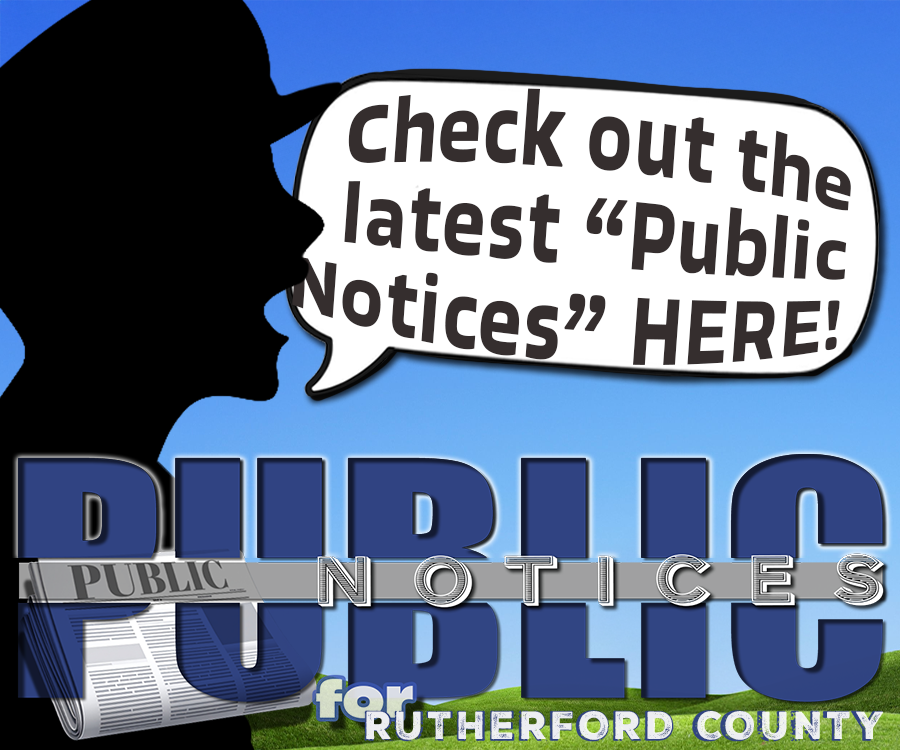After two review sessions last week, Murfreesboro City Council is ready to move to the public hearing phase of considering its 2012-2013 budget proposal.
For the 14th year in a row, the proposed budget does not call for a property tax rate hike and leaves the current $1.2703 per $100 of assessed value in place. One penny of the current tax rate will generate approximately $281,300 if approved by council. Murfreesboro’s fiscal year follows that of the State of Tennessee or from July 1 to June 30 of the following year.
Murfreesboro’s 2012-2013 proposed budget totals $112.29 million in revenues, a 2.51 percent increase from last year, according to the document. The City’s share of local option sales taxes has already exceeded those that came in Fiscal Year 2008, prior to the recent economic downturn and the upward trend is expected to continue into 2013.
“The economy is showing signs of rebounding as evidenced in a projected growth of 9.4 percent in local sales tax for fiscal year 2013,” Lyons said. “As such, we have budgeted an approximate $2.83 million increase for the fiscal year 2013 budget.”
Lyons does not recommend a hike in the property tax rate. “Property tax revenues are projected to be $35.74 million, which exceeds the FY 2012 budget by approximately $142, 000,” Lyons wrote. If the average Murfreesboro home costs $181,400, and assessments are made on a quarter of that appraised value, that average homeowner would pay $576.08 in annual property taxes or $48 per month.
For that $48, the homeowner funds police and fire protection, weekly garbage removal and yard waste collections, the City’s one-of-a-kind Parks and Recreation Department, street paving and repair along with snow and ice removal and public rights-of-way mowing in summer by the Streets Department, Planning and Engineering and Building Codes services and all that the increasingly popular St. Clair Street Senior Center has to offer, among many others.
Budget highlights as they pertain to council’s four major goals include:
Under safe and livable neighborhoods, the proposed budget addresses implementing the zoning study of the Maney Avenue area, initiating planning for a city park in western Murfreesboro, beginning construction of the Stones River Greenway extension to Barfield-Crescent Park and starting the transition to a new police and fire and rescue radio communications system.
To promote strong and sustainable economic and financial health, the proposal addresses implementing health insurance benefits design changes to drive consumerism and wellness, and, funding of a $44 million Capital Improvement Plan while continuing to monitor debt ratios and other measurements as adopted in the City’s Comprehensive Financial Policies.
Under Excellent Services with a focus on Customer Service, the budget document, if adopted by council, will provide residents with electronic options for city service payment, final plans for construction of a short golf course to be used as a training facility for youth and an information technology master plan that creates a roadmap for acquisition of software and hardware to replace the legacy systems used for general ledger and Human Resources.
And, under Engaging the Community, the proposal addresses Phase I of an employee engagement effort to focus on performance and will rename the Cable Television Department to Communications Department to better capture its role in providing information to the community.
Expenditures are also rearranged to reflect changing budget priorities.
“The proposed budget also makes expenditure adjustments,” Lyons wrote. “These include adjustments in expenditures beginning with a focus on the core issues of safety, financial health, excellent services and civic engagement. “Total General Fund expenditures are $117 million,” Lyons continued, “an increase of $3 million over fiscal year 2012.”
The 2012-2013 budget proposal also contains employee step raises based on its market-based Classification and Compensation Plan. The plan is built on an analysis of the “market rate” for the positions within the city’s organization based upon survey data of both public and private employers. “The cost of the pay increases, including the increased cost of FICA and retirement, is approximately $1.3 million annually,” Lyons wrote. “In addition to the full-time employee pay increases, we are proposing 15 cents per hour pay increase to all part-time personnel, as well.”




